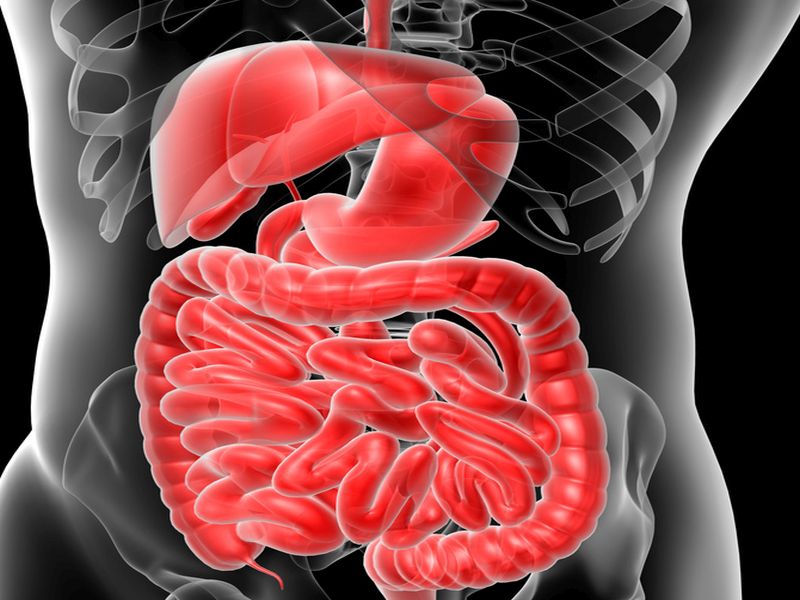Could Viagra, Cialis Help Boost Colon Cancer Survival?
Medically reviewed by Drugs.com
THURSDAY, Aug. 20, 2020 -- Erectile dysfunction (ED) drugs such as Viagra, Cialis and Levitra may do more than restore sexual function -- they may also prolong the lives of men with colon cancer.
That's the conclusion of a new Swedish study, which reported that the risk of premature death dropped by as much as 18% among colon cancer patients who used ED drugs.
The medications were also linked to a 15% reduction in risk for the key cause of death from colon cancer -- that is, cancer that has spread.
"This is the first population-based study to explore the effect of these drugs on the death risk in men with colorectal cancer," said lead author Wuqing Huang, a doctoral candidate at Lund University in Sweden.
She and her colleagues focused on so-called "PDE5 inhibitors" --drugs that address impotence by regulating penile blood flow.
"There are two reasons why we considered the anti-cancer possibility of these drugs," Huang said.
Prior studies suggested that ED drugs can inhibit tumor growth in mice and activity of a gene called PDE5A. Huang said past work suggested colon cancer patients with lower PDE5A activity levels may live "significantly longer" than others.
To get a better handle on the cancer-fighting potential of the drugs, the researchers used a nationwide database to identify men in Sweden who were diagnosed with colon cancer between 2005 and 2014.
After excluding patients with late-stage cancer, researchers focused on more than 11,300 cancer patients who were not taking an ED drug and about 1,100 patients who were. (No one was instructed to use the drugs if they weren't already doing so.)
Over more than four years of follow-up, about 10% of those who used an ED drug died, compared to 17.5% of patients who did not. The risk was even lower for those in the ED group who also had cancer surgery.
Huang said the explanation for the drugs' anti-tumor effect isn't yet clear. It could have to do with the beneficial impact EDs have on immune function, reduced cell death and chemotherapy sensitivity, she said.
But until researchers can get a better understanding, "it is not suggested for colon cancer patients to get ED medications to control their cancer at this moment," Huang said.
"The current evidence is not enough to provide recommendations, as our study is an observational study," she stressed. "Clinical trials are necessary to confirm it."
Still, Dr. Andrew Chan, a professor at Harvard Medical School and Massachusetts General Hospital in Boston who reviewed the study, said the findings were intriguing.
"The work extends a prior study from this group showing that these medications may reduce the risk of developing colorectal cancer," he noted. "It is also biologically plausible that these medications may have an anti-cancer effect, since they are known to block a specific protein that may play a role in cancer development."
The findings were recently published in the journal Nature Communications.
Disclaimer: Statistical data in medical articles provide general trends and do not pertain to individuals. Individual factors can vary greatly. Always seek personalized medical advice for individual healthcare decisions.
© 2025 HealthDay. All rights reserved.
Read this next
Many Cancer Patients Say Doctors Aren't Honoring Their Treatment Desires
TUESDAY, Aug. 26, 2025 — Frequently, patients with advanced cancer simply want to be made as comfortable as possible as they wind down their final days. Doctors...
Gut Docs Lose Their Edge Leaning On AI Assistance For Colonscopy
THURSDAY, Aug. 14, 2025 — Artificial intelligence (AI) is being touted as a means of improving doctors’ effectiveness, but the new tool might dull their skills in some...
Sending Unsolicited Stool Test Kits The Best Way To Boost Colon Cancer Screening, Study Argues
THURSDAY, Aug. 7, 2025 — Automatically mailing a stool test kit to people’s homes might be the best way to boost colon cancer screening among younger adults, a new...
More news resources
- FDA Medwatch Drug Alerts
- Daily MedNews
- News for Health Professionals
- New Drug Approvals
- New Drug Applications
- Drug Shortages
- Clinical Trial Results
- Generic Drug Approvals
Subscribe to our newsletter
Whatever your topic of interest, subscribe to our newsletters to get the best of Drugs.com in your inbox.


